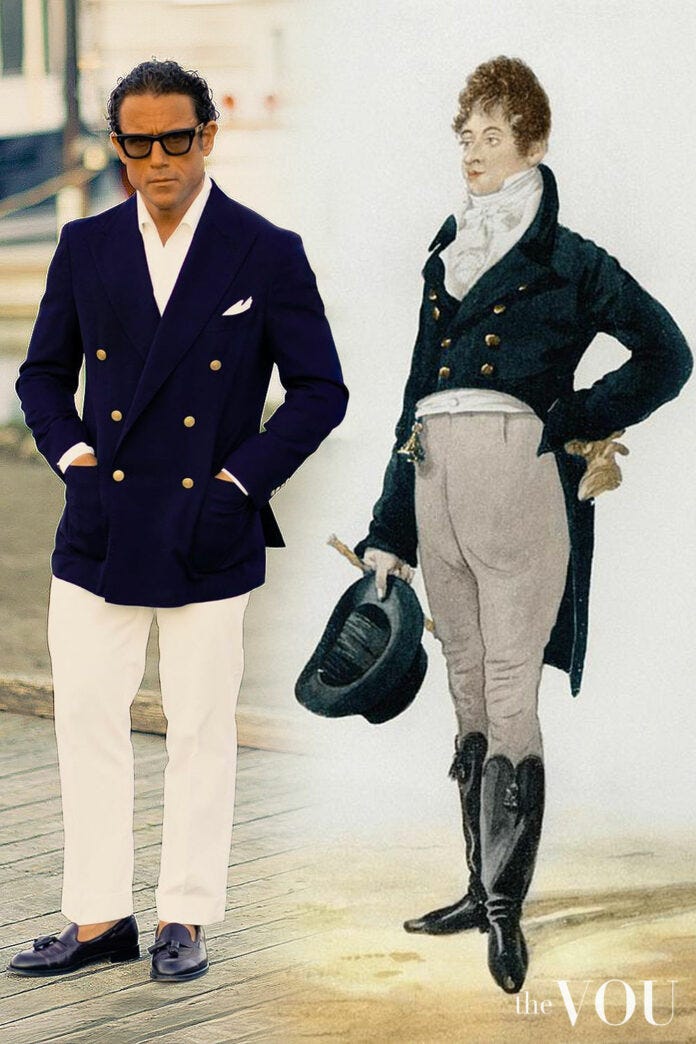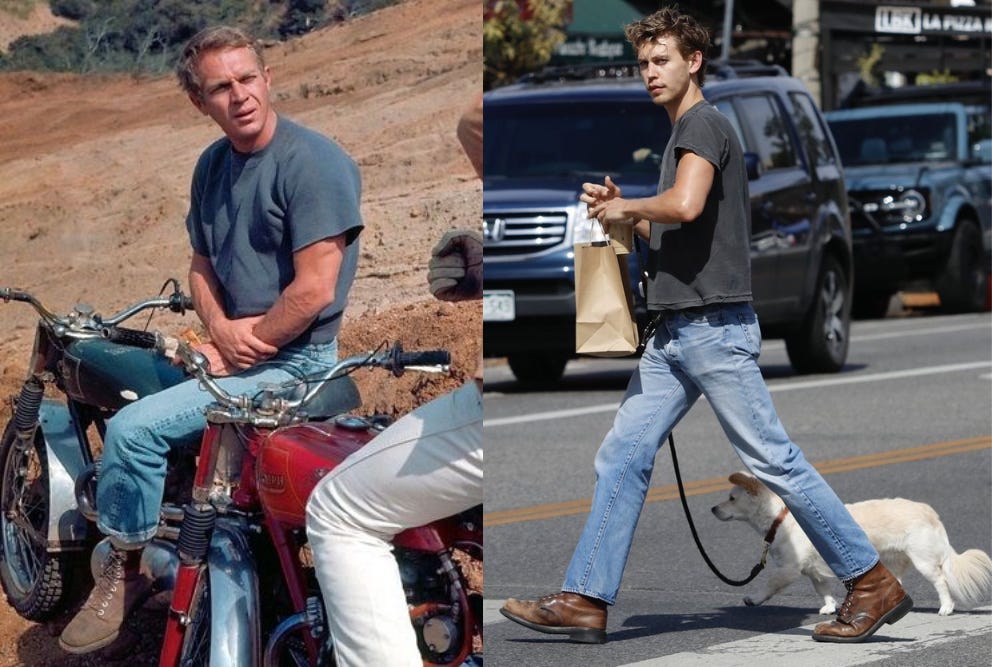Timeless Style Is Real (If You Want It)
A more chilled take on the idea that "timeless style is a lie."
The last Blackbird Spyplane article has been weighing on me over the past week. Partly because it contains a lot of half-truths but also partially because it appears to advocate for a hedonistic approach to consumption over building an understanding of personal style through intentional choices. The main thing it seems to get wrong is its premise that fashion trends perpetually change; therefore, style cannot be timeless. Jonah’s take seems to be that you should strive for consistency, but if you like something, take the risk of looking bad and buy it. I agree that risk-taking builds confidence, but I think if people want to make more educated and lasting decisions, they need to dive a little deeper. Timeless style is achievable through this exercise; it just doesn’t look like what we’ve been told.
“The stronger your identity, the more unwavering your tastes are.”
Style is subjective. I have to say that upfront. Whatever my tastes are, they’re the result of what influences me personally, and it may not be the same for you. If you dig deep enough into any two people’s preferences, however close they may be, if they have some sense of personal style, there will be distinctions that differentiate them. The less of an identity you have, the more prone you are to influences. By contrast, the stronger your identity, the more unwavering your tastes are (and in a well-oiled human being, taste is what dictates style). That’s just human nature.
“Whatever you know about a decision you’re making is the substance that holds it together, its credibility.”
I believe good taste requires more than just an eye for visually and aesthetically pleasing garments. It requires a deeper understanding of individual components—colors, texture, silhouettes, and knowledge of how they function when combined and what they might connote to your audience. The more you develop your taste, the more you create your identity—the thing that makes your style personal. I don’t believe you can have a good personal style without some baseline understanding of why it’s good. Whatever you know about a decision you’re making is the substance that holds it together, its credibility. You can buy something just because you like it, but that doesn’t equate to an understanding of personal style. There is likely a tipping-off point where you get too caught up in details and lose the forest for the trees, but for the most part, this is a non-negotiable. Understanding comes from exploration and from making mistakes. Often, it’s the unconscious sum of the parts, the result of exploration without necessarily codifying it into words or ideas.
This is, I believe, the soul of what Jonah is trying to say—the only universal truth to timeless style is that it’s personal. You must find it for yourself, and your truth may not be somebody else’s. It may evolve as you explore it further, but it won’t change at its core if you know what you like and are true to yourself. Sure, people have the capacity for change, but while our realities and relationship with the world around us change, there’s something in our core identity that holds fast. That is your truth. Once you find your truth, the likelihood of change is inversely proportional to your satisfaction with that perceived truth. It’s why some people get settled in their ways, and others are constantly seeking. Timeless style stems from self-knowledge and self-acceptance. It’s essentially self-confidence and confidence in your decisions.

Here’s an example: I love a navy blazer. I always have and always will. You don’t have to like it, and in fact, this example might work better if you don’t. I know a navy blazer looks great on me, it looks great on firefighters and other service members, it looks great on Ethan Newton, and I imagine it looked great on Beau Brummell. Is Brummell the beginning of style? No, but for modern menswear, his predilections are where many of our dress codes started. Does that mean the clothing he wore was timeless? For him, perhaps. The silhouettes have changed since then, but the color palette, the fabric preferences, and the method of combining them into an outfit have not. The reason it’s timeless is not so much that we venerate Brummell himself, but rather that we, as a society, at some point came to a consensus that this style is bon ton. Why we initially decided that is less definable, but the consensus came from years of conscious decisions by outfitters for the military, royalty, and other reputable services in their formal dress. Many of these contemporary counterparts—those that wear a navy blazer today—likely don’t know the history, their own values, or why it makes them look good. Without that knowledge, they can’t wear it with confidence. They, therefore, may not have timeless style, and neither might you just for wearing one.
My preference for the navy blazer comes from personal experience. From the memories I have of wearing one at milestones in my life and seeing it worn by the personal idols I aspired to be and dress like. The navy blazer has endured, and although the fit and various small details have changed, it is still a timeless garment for me and a handful of others. Will it remain so for future generations? Likely not in the same form, if at all. But that will be their choice, not mine.

Ultimately, I’m trying to say that timeless style results from a series of deliberate choices you make for yourself. That’s what people saw—and many still do—in McQueen and his Harrington jacket. I think Jonah’s article gets close to this conclusion but misses the landing. Timeless style is personal. It’s subjective, and it may not be quantitative. You can’t bottle and sell it. It’s the same thing as the concept of “cool”—there really is no universal truth as to what is cool at any given point in time. Still, I know a good many people (Noboru Kakuta is an example on one end of the spectrum; Chinatown’s senior citizens are another) who have great enduring style due to their deliberate choices. The confidence they display in those choices and how they carry themselves is the result of knowing themselves, and that self-knowledge in itself is timeless. It comes from a deeper exploration of your body type, how you like clothing to fit, who you are, and what you want to represent. But it is knowable and achievable if you want it, and once you have it, it’s not going anywhere.
I offer personal consultations if you need one-on-one guidance in developing your sense of style. Contact me here for more information!






